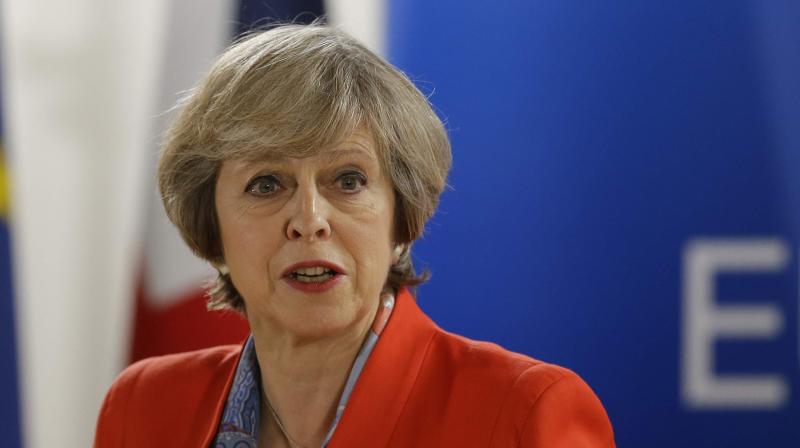Local polls boost Theresa May five weeks before UK national election

London: Britain's Conservative Party made strong gains in local elections on Friday, suggesting Prime Minister Theresa May's Brexit strategy is winning over voters who should hand her an easy victory in a parliamentary poll next month.
Partial results from the local elections, which voters often use to punish the ruling party, showed May's Conservatives had instead gained more than 500 council seats.
The main opposition Labour Party lost control of councils in strongholds in Wales but the biggest losses were suffered by the anti-EU UK Independence Party, which after two decades of campaigning to leave the European Union has struggled to find a new raison d'etre since Britons voted for Brexit last June.
By calling an early national election for June 8, May has made the local votes a gauge of her leadership, and many Conservative candidates have campaigned in recent days using her campaign mantra of "strong and stable leadership".
But turnout was low and the Conservatives were careful not to overplay their expected victory next month.
May said she was taking nothing for granted. "Only a Conservative vote at the general election will strengthen my hand to get the best Brexit deal," she told supporters.
Labour played down its losses. Finance spokesman John McDonnell described the results as tough, but "it hasn't been the wipe-out that some people predicted or the polls predicted".
SCOTTISH GAINS
The Conservatives also did well in the vote for six metropolitan area mayors.
Former retail sector boss Andy Street won a tight contest with Labour for the West Midlands area around Britain's second city Birmingham, although former Labour cabinet member Andy Burnham won Greater Manchester.
In Scotland, which since the late 1990s has largely shunned the governing party, early results showed the Conservatives gaining to the detriment of both Labour and, to a lesser extent, the Scottish National Party, which still looked likely to win the lion's share of votes overall.
That would mirror a trend predicted in polls for next month's national election, showing the Conservatives becoming the party of choice for many of those who reject Scottish independence.
Opinion polls give May a runaway lead in the national election of around 20 percentage points, which could hand her more than 100 more seats in parliament and bolster her hand in divorce negotiations with the EU.
May has accused EU officials of seeking to sway the outcome of the election by issuing threats over Brexit, and warned voters that the other 27 member states were lining up against Britain to win a deal that "works for them".

